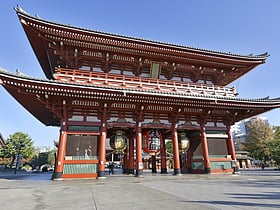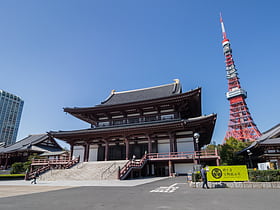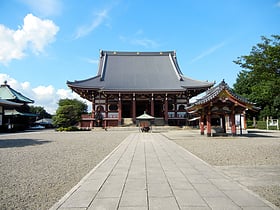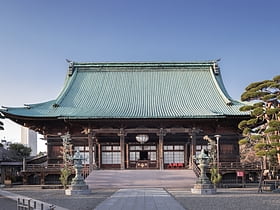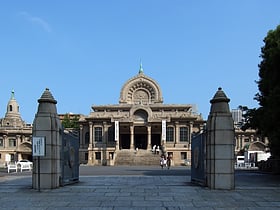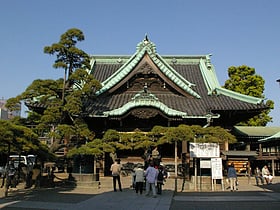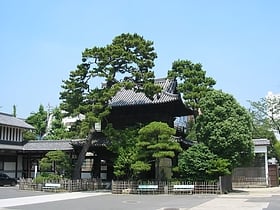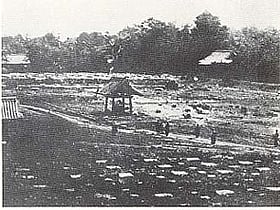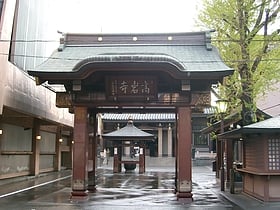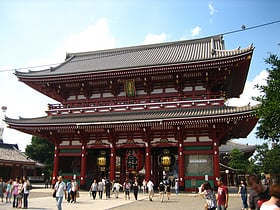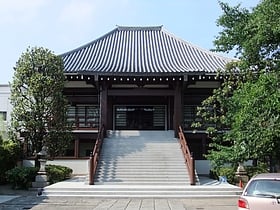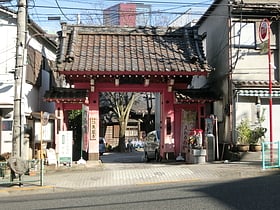Tokyo: Buddhist Temple
Places and attractions in the Buddhist temple category
Categories
- Museum
- Park
- Temple
- Art museum
- Sacred and religious sites
- Neighbourhood
- Shopping
- Amusement park
- Theater
- Skyscraper
- Concerts and shows
- Universities and schools
- Buddhist architecture
- Specialty museum
- Nightlife
- Area
- Architecture
- Historical place
- Shopping centre
- History museum
- Garden
- Amusement
- Concert hall
- Sport
- Music venue
- Sport venue
- Theme park
- Music and shows
- Amusement ride
- Buddhist temple
- Arenas and stadiums
- Bridge
- Library
- Art gallery
- Modern art museum
- Event space
- Palace
- Dancing
- Tower
- Science museum
- Observation decks and towers
- Church
- Forts and castles
- Business center
- Botanical garden
- Convention center
- Entertainment district
- Sport complex
- City
- Cemetery
- Monuments and statues
Sensō-ji
Historic temple to the goddess of mercy Sensō-ji, an ancient Buddhist temple located in the historic Asakusa district of Tokyo, Japan, is the city's oldest and one of its most significant religious sites. The temple, associated with the Bodhisattva Kannon, or Avalokitesvara, attracts millions of visitors...
Zōjō-ji
Buddhist temple complex dating to 1622 Zōjō-ji is an iconic Buddhist temple located in the Minato district of Tokyo, Japan, offering a serene escape amidst the bustling cityscape. Founded in 1393 as the main temple of the Jodo sect of Japanese Buddhism, it has stood as a spiritual center for centuries...
Ikegami Honmon-ji
Ikegami Honmon-ji is a temple of the Nichiren Shū south of Tokyo, erected where Nichiren is said to have died. Also Nichiren's disciple Nikkō spent the rest of his life at this temple. The temple grounds also include Nichiren Shū's administrative headquarters.
Gokoku-ji
Gokoku-ji is a Shingon Buddhist temple in Tokyo's Bunkyō.
Tsukiji Hongwanji
Tsukiji Hongan-ji, sometimes archaically romanized Hongwan-ji, is a Jodo Shinshu Buddhist temple located in the Tsukiji district of Tokyo, Japan. The temple is adjacent to Tsukiji Station on the Tokyo Metro Hibiya Line.
Shibamata Taishakuten
Daikyō-ji, popularly known as Shibamata Taishakuten, is a Nichiren-shū Buddhist temple in Katsushika, Tokyo, Japan. Founded in 1629, the main image is of Taishakuten.
Sengaku-ji
Sengaku-ji is a Buddhist temple belonging to the Sōtō school of Japanese Zen located in the Takanawa neighborhood of Minato-ku, near Sengakuji Station and Shinagawa Station, Tokyo, Japan.
Kan'ei-ji
Tōeizan Kan'ei-ji Endon-in is a Tendai Buddhist temple in Tokyo, Japan, founded in 1625 during the Kan'ei era by Tenkai, in an attempt to emulate the powerful religious center Enryaku-ji, in Kyoto. The main object of worship is Yakushirurikō Nyorai.
Kōgan-ji Temple
Kōgan-ji, Colloquially Togenuk Jizōson, formally: Banchō-Zan Kōgan-ji-Buddhist temple of the Sōtō Zen school in Tokyo, Japan. Known for the "healing" statues of Jizō and Kannon.
Hōzōmon
The Hōzōmon is the inner of two large entrance gates that ultimately leads to the Sensō-ji in Asakusa, Tokyo. A two-story gate, the Hōzōmon's second story houses many of the Sensō-ji's treasures.
Zenshō-an
Zenshō-an is a Buddhist Rinzai Zen temple, located in Taitō, Tokyo, Japan. It has a large collection of Japanese yūrei paintings, which are normally exhibited in August, the traditional month of spirits and ghosts.
Gyoran-ji
Gyoran-ji, formal name Suigetsu-in Gyoran-ji, is a Buddhist temple in 4 Mita, Minato, Tokyo, Japan. It is located in the mountain side of Tsuki no Misaki.
Map

